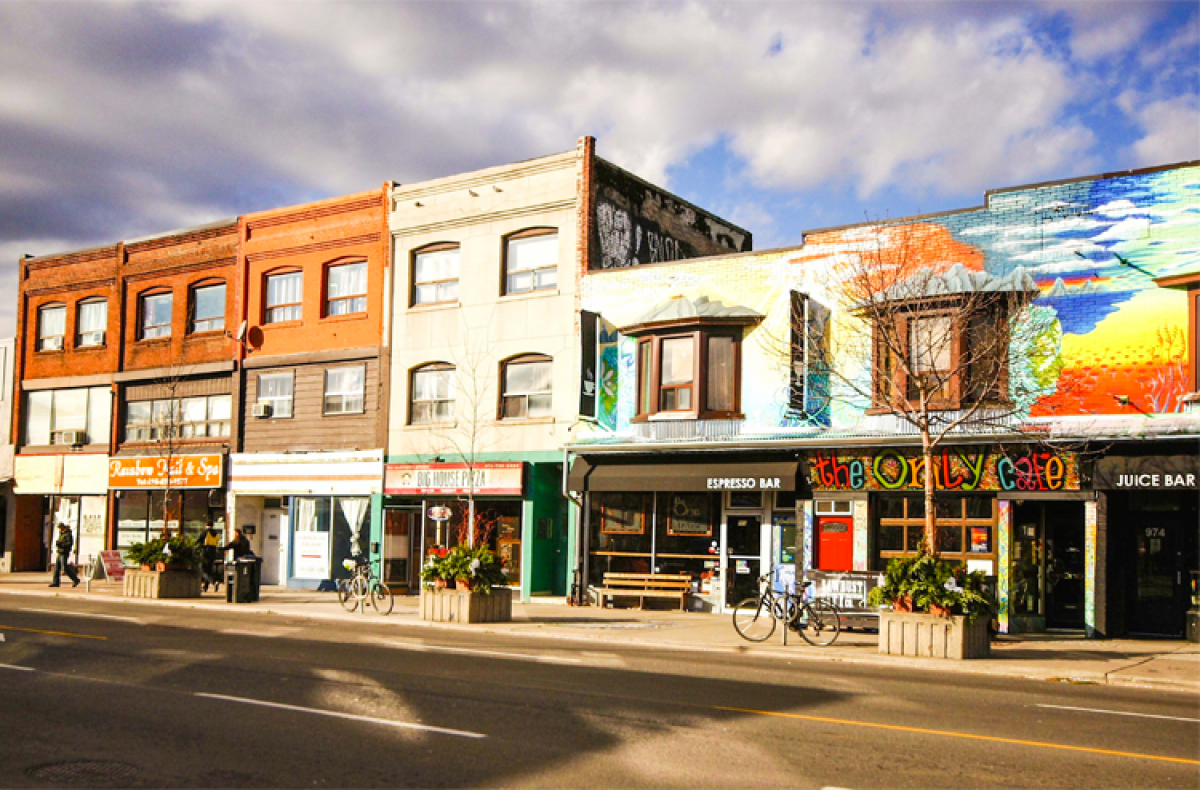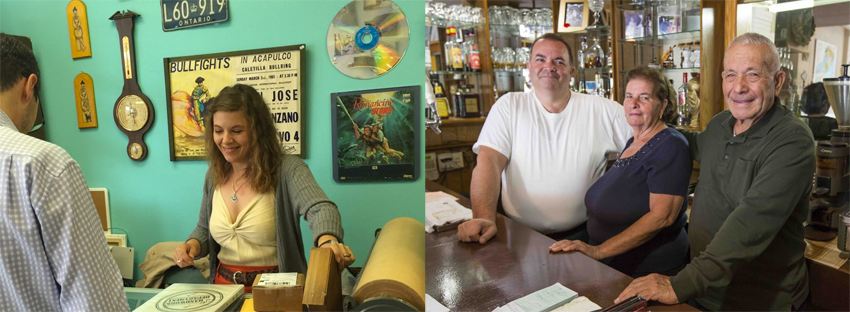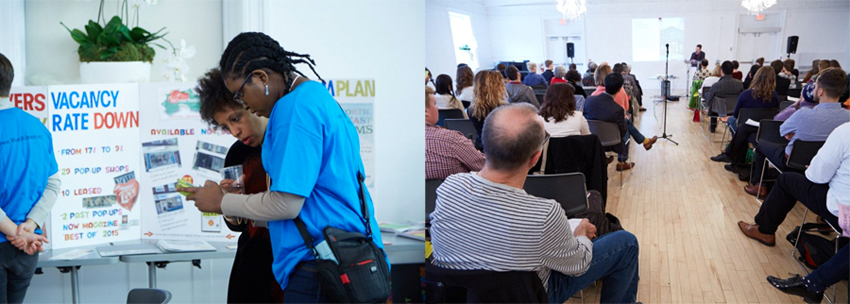Three strategies for systems impact
Metcalf’s Inclusive Local Economies Program supports strategies that can create sustainable economic opportunities for low-income people and communities in Toronto. The Foundation is keenly interested in how innovations that succeed at the neighbourhood level can be scaled up and translated into the broader landscape of public policy, research, and community action. The Danforth East Pop-Up Project, a Metcalf grantee since late 2012, provides a compelling case study of this process in practice.
The Pop-Up Project was launched in 2012, when volunteers from the Danforth East Community Association (DECA) sought to rejuvenate a declining commercial area in their east Toronto neighbourhood by matching empty storefronts with local entrepreneurs. Their “Pop-Up” pitch seemed like a win-win proposition: entrepreneurs could test their businesses before investing in more permanent locations, landlords would benefit from their newly spruced-up storefronts, and the appearance of new businesses would encourage neighbourhood residents to shop locally. However, a lingering tax rebate for vacant retail properties presented a substantial barrier to the project’s ability to succeed.
“Because of this rebate, landlords were sometimes reluctant to rent to our project,” explains Gay Stephenson of WoodGreen Community Services, a partner organization with DECA in the Pop-Up Project. “But we knew that if we pushed for changes to the provincial legislation, we could help solve the problem of the vacancies rate and share this model with other communities.”
In February 2017, Pop-Up Project staff and volunteers celebrated a substantial victory when Toronto Council voted to request a change to the provincial rebate. After years of groundwork, the group was successful in laying the foundation for a shift in government policy.
The Pop-Up Project’s long-term success was derived from three key strategies:





